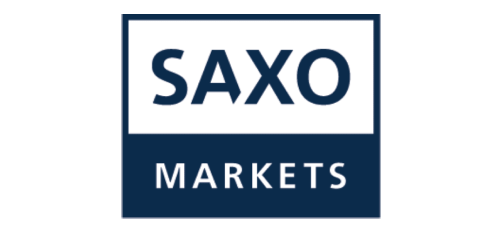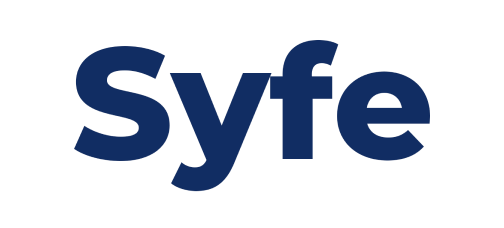Could Singapore Investors Be Affected By China Evergrande’s Debt Crisis?

Made in China jokes aside, people who trade Chinese stocks know that you have to stay on your toes at all times.
Sure, they can offer explosive growth potential, but there’s always the risk that the company will go under because of some fraud (Luckin Coffee, anyone?) or government crackdown.
To be fair, these threats are present anywhere, not just China. But the ginormous levels of authority the Chinese government wields mean that crackdowns can happen swiftly and transform the business landscape overnight. In addition, Chinese suffers from relatively high levels of fraud, which is common in developing countries.
The latest fiasco is the Evergrande crisis that’s been splashed all over the news for a few weeks already. Even if you don’t dare to invest in Chinese stocks, there is a chance Evergrande will affect your other investments or even your life. *cue ominous music*
What is China Evergrande Group?
Evergrande is a real estate developer in China, founded in Guangzhou in 1996 and now based in Shenzhen. It’s not just any old real estate developer, but one of China’s biggest, ranked #2 in the PRC based on sales.
The company currently owns over 1,300 projects, scattered across more than 280 Chinese cities. For comparison’s sake, our own Capitaland, one of the largest real estate developers in Asia, only owns about 600+ properties in 160+ cities worldwide.
Besides property, the group also has investments in a number of diversified industries, including electric vehicles, health, finance and… pig farms. They have their own mineral water brand promoted by Jackie Chan and also own a football team.
They even bought 50% of Singapore’s Great Eastern Life Insurance Company and renamed it Evergrande Life Assurance, although they’re now thinking of selling it to raise money.
Evergrande stocks are listed on the Hong Kong Stock Exchange. Unsurprisingly, stock prices are currently at a five-year low.
Sponsored
Online Promo
Saxo Markets
Online Promo:
Stand to win from S$888 up to S$8,888 weekly and a newly-released 100% electric Polestar 2. Valid till 16 Feb 2022
Enjoy S$0 commission fees when trading ETFs on Saxo Markets. Valid till 31 Dec 2021. T&Cs and certain market exclusions apply
Valid until 16 Feb 2022
Stand to win from S$888 up to S$8,888 weekly and a newly-released 100% electric Polestar 2


More Details
Key Features
Commission rate for SGX stocks & ETFs remaining at 0.08%, the lowest rate in the market
Offers wide range of product portfolio across stocks, ETFs, bonds, commodities, options, futures, funds, FX, and CFDs
Access more than 19,000 stocks and 3,000 ETFs across 37 exchanges worldwide such as NYSE, NASDAQ, SGX, and more
3 Account tiers: Classic with S$3,000 minimum initial funding, Platinum with S$300,000 minimum initial funding, VIP with S$1,500,000 minimum initial funding
Higher account tiers offer improved trading conditions such as lower prices, priority customer support, direct access to trading experts, 1 to 1 access to Saxo’s in-house strategists at SaxoStrats, and access to events and VIP network
Your Saxo account gains you to access 3 types of trading platforms: the simple and fast SaxoInvestor, a comprehensive SaxoTraderGO, or the fully customisable and professional SaxoTraderPRO on desktop, mobile, and tablet
Provides comprehensive research and analysis tools and a 24/5 customer service
What’s the Evergrande debt crisis?
Evergrande has been involved in some crazy, massive projects in recent years, such as the construction of the biggest soccer stadium in the world and a gigantic theme park with a fake island.
But all that glitz and glamour comes at a price, and Evergrande’s debts have now swelled to the point where they’re at risk of defaulting. In fact, they’ve won the title of the world’s most indebted developer, owing a whopping $304 billion.
That kind of debt isn’t accumulated overnight. The company has been having cash flow issues for a while already. To raise money, Evergrande became the largest issuer of junk bonds in Asia. Junk bonds offer high interest rates but also carry a high risk of default. When a company releases junk bonds, that’s usually a sign they’re in trouble and desperate to raise cash.
The world only started to take notice when news of an asset freeze in one of Evergrande’s divisions leaked out in July. Asset freezes are ordered by the court to stop the company from evading its debtors by transferring out its money or assets.
Since then, life for Evergrande has been anything but grand due to a series of failures to pay and credit rating downgrades.
Fitch Ratings has downgraded Evergrande from B to C, while S&P Global Ratings has downgraded them from B+ to CC. These bad grades are not just a kiasu parent’s worst nightmare but also a real warning to investors—Fitch Rating C means there is a real possibility of default.
Evergrande’s shareholders are of course freaking out and the company’s share prices have plunged by more than 80%.
So what now? The company just announced that it will be going private and delisted from the stock exchange. Those poor hapless shareholders still left holding on to Evergrande stocks will be paid a measly $4.00 HKD for each cancelled share, which is sad when you consider that Evergrande’s share prices were over 20 HKD for most of 2018 and 2019.
Online Promo
Tiger Brokers
Online Promo:
Get 500 Tiger coins, 60 commission-free stock trades, 5 commission-free Futures trades and 1 free Apple share when you trade with Tiger!
Valid until 31 Oct 2021
More Details
Key Features
Offers one of the most competitive commission rates of 0.01USD / Share (minimum US$1.99 / order) on ETF trading
Gain access to over 3,000 global ETFs from 30+ exchanges worldwide including US, SG, HK, AU, and JP stock exchanges
Leverage an extensive repository of educational videos and online courses to learn how to invest in ETFs
Help desk assistance available 24/5 for any immediate customer service issues
Are Singapore banks involved?
When a company as big as Evergrande goes down, the knock-on effects can be huge as there are investors all over the globe who will be affected.
In addition, lenders that have disbursed money to Evergrande risk not being repaid. Even lenders that haven’t directly lent money to them might find themselves in trouble. If Evergrande defaults, many other companies are going to collapse and default, so just having exposure to China and Hong Kong could be detrimental.
Some fear that Evergrande’s collapse could take on Lehman Brothers proportions, sparking off another global financial crisis. But some analysts don’t think it will be that bad. For one thing, as a property developer, Evergrande has real estate that can be dispersed if they go bust. In other words, the big lenders can still get their money back in the form of property put up as collateral.
That being said, the Evergrande fiasco could be the sign of a deeper malaise haunting the Chinese economy. Despite the government’s narrative of prosperity, the property bubble and the abundance of empty apartment buildings and factories could be a warning of times to come.
Singapore’s three big local banks, DBS, OCBC and UOB, all operate in China and Hong Kong. Worried that they’ll be affected if Evergrande collapses, MAS has been quizzing them about their exposure.
So far, DBS has said that it has no exposure to Evergrande. However, 24% of DBS’s group assets, 28% of their group loans and 22% of their group Profit Before Tax (PBT) are from Hong Kong and Greater China.
As for OCBC, 16% of the group’s assets stem from Greater China, as well as 26% of loans and 24% of group PBT.
Meanwhile, 16% of UOB’s group loans are traced to Greater China, together with 10% of group PBT.
Online Promo
Free Access to Wealth Advisors
Syfe
Online Promo:
Use promo code "MSWAIVER" to get 3 months of fees waived for up to $50,000! Min. deposit amount of $5,000 required.
Valid until 31 Dec 2021
More Details
Key Features
4 portfolio options: Core, REIT+, Cash+ and Select
REIT+ holds Singapore's 20 largest REITs in one portfolio: Ascendas REIT, Mapletree Commercial Trust and more
Syfe Core portfolios hold stocks, bonds, and gold and provide diversified exposure to US and China
Cash+ is a cash management portfolio with projected returns of 1.5% p.a.
No minimum investment, no lock-in period, withdraw anytime.
Licensed by MAS under Capital Market Services for retail fund management.
What should Singaporean investors take note of?
If you have banking shares, you should check if the bank has exposure to Evergrande as well as to Greater China and Hong Kong. Those are risk factors that could cause your share prices to fall if Evergrande goes down.
For those with real estates shares, you should definitely follow the Evergrande saga closely, but that doesn’t necessarily mean your share values will be affected negatively. In fact, some analysts think that developers in Singapore can benefit from Evergrande’s collapse in the long run by picking up cheap properties in China. The downside is that in the wake of Evergrande’s collapse, the Chinese government might start regulating the property sector in China more tightly, which will negatively affect developers with Chinese projects.
More broadly speaking, if Evergrande collapses, you can expect the Singapore and China/Hong Kong stock markets to take a hit, although analysts are divided as to whether the spillover effects into Singapore will be serious. But that could also be a good time to step in and pick up stocks at bargain basement prices.
Find this article insightful? Share it with your fellow investors!
The post Could Singapore Investors Be Affected By China Evergrande’s Debt Crisis? appeared first on the MoneySmart blog.
MoneySmart.sg helps you maximize your money. Like us on Facebook to keep up to date with our latest news and articles.
Compare and shop for the best deals on Loans, Insurance and Credit Cards on our site now!
The post Could Singapore Investors Be Affected By China Evergrande’s Debt Crisis? appeared first on MoneySmart.sg.
Original article: Could Singapore Investors Be Affected By China Evergrande’s Debt Crisis?.
© 2009-2018 Catapult Ventures Pte Ltd. All rights reserved.

 Yahoo Finance
Yahoo Finance 


